- Home
- Hugh Howey
Half Way Home Page 20
Half Way Home Read online
Page 20
“Impossible. There’s no way—”
Someone stormed through the door behind me. I turned, wondering if I would have to fight Hickson, but it was Kelvin. He ran forward, blood flowing from his nose and down across a huge smile.
“Are you okay?” I asked, holding my wrists up to him.
“He got one good punch in,” Kelvin said, as he began untying my hands. “I got a few more, though.” He glanced at the monitor. “Didn’t take you long to piss him off.”
“Kelvin?” Colony asked. “What’s going on?”
I stood and slapped Kelvin on the shoulder. “Thanks for coming, but you should’ve finished the mop-up first.”
“It’s almost finished,” he said. “There wasn’t much resistance.”
We started walking out of the module while Colony pestered us with questions. We ignored them all.
“Everyone else okay?”
“Yeah. A little overeager, maybe. People have been anxiously waiting two days for this.”
We stepped out of the module to find most of the surviving colonists moving toward us, enforcers in tow. Hickson and Myra sat in the dirt with their backs to the module, their hands tied behind them. I noticed Hickson had a bloody nose of his own, plus a busted eye. I tried not to take satisfaction from that, but it wasn’t easy.
More enforcers were led forward by other colonists to join the two by the command module. It was a sad sight: the emaciated leading the half-starved. As the crowd swelled, I saw it wouldn’t be long before the remaining colonists were gathered around, all of them except for our friends up in the canopy. And Mica and Vincent, of course. The two of them had been left behind in the mine to heal and recuperate.
“Can we kill that klaxon?” I asked Kelvin.
“Gladly,” he said. He waved over a few of his fellow construction guys, who were escorting another enforcer.
“You’ll be nuked any second,” Hickson yelled over to me. “Colony will send out instructions via satellite. And any moment from now, you’ll all be a cloud of ash.”
I wanted to ignore him, but I didn’t have the strength. I walked over and knelt before him and Myra.
“Actually, Hickson, the nukes were disconnected two days ago. Of course, it isn’t one of those things you know about until they no longer work. And how often are you gonna test them?”
His face screwed up in a mask of confusion. “What did you—? How did you disconnect them?”
“Me? Even if I’d been here, I wouldn’t know the first thing about that. I’m guessing Dyna would’ve been the one. She knows more about the server connections than I ever would. I even bet it’s her job to tell Colony something’s wrong with the nukes.”
Above me, the klaxon fell silent. I glanced up to see Kelvin peering down at me from the roof, a goofy grin on his face.
“The ammo,” Hickson said. “Fucking supply group.”
I glanced back down at him, then over at Myra, who was chewing her lip and looking off into space. “Did you try and shoot somebody?” I asked Hickson.
“Me,” Kelvin said from above. I watched him stomp across the module toward his friends, who were poised to help him down.
I turned to Hickson. “You went to the vats, didn’t you?”
Hickson sneered. I thought about the fact that he had actually gone to the vats to kill Kelvin, and I pictured myself standing up and putting a foot through his face. I looked around for Tarsi as more and more colonists gathered with their prisoners, many of them showing signs of a scuffle.
“How did you do it?” Myra asked.
“Easy,” I said, “there’s dozens of us and only a handful of you. And every one of us wants to be free. Once we spread the word on what Colony was doing, all we needed was a signal.”
“But how did you tell them and not us?”
“How often do enforcers go on bombfruit duty?” I asked. “My friends started dropping some special deliveries two days ago, bombfruit with messages inside. You know, if you’re gonna rule people with an iron fist, you might wanna control the other little fists that deliver your food and pack your ammo—”
“Porter!”
I turned to find Tarsi running toward me. I stood and caught her as she threw herself into my arms. She pulled back and held my cheeks with both her hands as she studied my face.
“Are you okay?” she asked.
“Yeah. Never lifted a finger.” I looked around and saw dozens of half-familiar faces altered by malnutrition and helplessness. The last of the enforcers were pushed to the dirt and lined up alongside Hickson and Myra. “Anybody hurt?” I asked Tarsi.
“Minor scrapes. Julie is tending to them, but somebody really needs to be tending to Julie. She’s not doing so good.”
“That might fall to me, just from the glimpse I got.”
“Sorry I didn’t come straight away. I had to help in the vats.”
“Don’t worry. I should’ve been the least of everyone’s concerns.”
Kelvin joined us, his eyes glaring daggers down at Hickson. Tarsi freaked out when she saw the blood on his face and set to cleaning him up. She began fussing with him over the fight he must’ve had in the vats.
I stepped away from the two of them, knowing I would be doing a lot of that over the coming days and weeks. I hadn’t had the courage to tell Tarsi during our hike, but I would soon be setting her free and explaining my love for them both.
I turned to the other colonists and saw a circle of sorts had formed, everyone stepping back and watching our little group as if they expected one of us to say something. I looked to Kelvin for support, but he and Tarsi had moved off to the side. The colonists were looking to me.
I felt alone, just as Colony—and my founding country—had programmed me to be. And as an expectant hush fell over the crowd, I realized that I had it backwards. Colony and its engineers didn’t program me to be alone; they simply programmed everyone else to ensure that I would be alone. There wasn’t anything wrong with me; there just weren’t enough of me. Colony hadn’t protected against clinical conflicts of interest by making me gay. It did so by making sure I was the only one of my generation.
I could love—that was something I knew perfectly well. Tarsi, Kelvin, Stevens . . . even Myra in some ways. I had loved them all and would continue to do so. That was my gift. If anyone was cursed, it was those limited by their programming. Those with hate in their hearts, unwilling to love anyone not like themselves.
As a victorious physical revolution wrapped itself up around me, an emotional one seemed to be taking place within. I realized, right then, that I wasn’t broken. I was okay. At least, I would be.
“What now?” someone shouted.
“We need food!”
I smiled at the crowd and raised my hands. “And food is coming as we speak. Our friends in the canopy, the ones who dropped the messages, should be well on their way. They’re bringing meat and some green chips we’ve found to be edible. Oh, and your favorite—bombfruit!”
There was a smattering of laughter amid a much louder chorus of groans.
“What about them?” a guy in front yelled, pointing to the enforcers lined up behind me.
“That will be up to all of us,” I said. “We have a lot to figure out, but we will be the ones doing it. As far as I’m concerned, this colony has been aborted, but not us. We will create our own future. We will nurse ourselves back to health. I hope some of those that have hindered this effort will change their minds and assist us. Some will probably not. The first thing we need to do is figure out how to govern ourselves, and then we can decide how best to govern each other.
“It won’t be easy,” I agreed, as grumbles began coursing through my fellow colonists. “Nothing in my profession suggests we should expect it to be. And this planet poses special difficulties, but it’s still our home.”
I stepped forward, my hands spread wide. “We can do this,” I told them. “We have the tools, the land, the resources. If we work together, we can live out our lives he
re and gain a foothold. But I must warn you that this will not be the end of our struggles.
“This will be the beginning.”
• 36 • The Payload
Today is our birthday. Today we are officially one.
For almost a year, the nearly completed rocket stood over us like an unlit candle, a reminder of the day we were born underwater and on fire.
Nearly eleven months have passed since our revolution, and since that time, much has changed, not the least of which has occurred within us.
Our planet does not have much mineral wealth, not until we discover where the great burrowing beasts go to die (if indeed they do). Until we can reclaim some of their valuable hides, we’ve made do with the steel sent from Earth in the original lander. The fence that proved worthless in keeping us safe has offered up most of our refined steel. And the smaller vinnies have proven useful for tilling the soil. They are difficult to harness but keen on moving in straight lines. And their quiet labor doesn’t draw the tremors like the tractors would.
Every day, the prognosis for our little venture is measured by rough calculations of morale. And with every bit of progress, it looks more and more like our colony will prove viable.
The first harvest approaches, and fittingly, the first members of our next generation are almost due. Soon, our numbers and our bellies will be increasing for the first time since our arrival. There is much excitement around our village, and nervous guesses about what the future holds for our youth. It seems strange that their professions are still undecided, and that their education will be in our hands, not yours.
All is not perfect, of course, nor do we expect it to be. We disagree constantly and are learning methods for coping with that. As our numbers grow, we will eventually need to formalize some sort of political structure. But these are problems that mark our more basic victories. We have learned to view these challenges as signs of progress, not dilapidation. We survive in order to struggle. Struggling means we’re winning. Hopefully our children will be up for similar challenges. Hopefully they will learn from your mistakes and our own.
One of our biggest disagreements, not surprisingly, was over this very story. Many were shocked to find I’d begun recording my tale over the past year. Once it began circulating, some were delighted and suggested refinements here and there, giving me perspectives on things I had missed. Still, I tried to keep it my story, lest it become something too large to wield.
The real arguments began when I suggested sending this out to you. To all of you.
It was meant as a joke, at first. The idea seemed crazy: using our cursed rocket to send out the very information we sacrificed so much to protect. We spoke of it as teenagers speak of many things—with a desire to flaunt ourselves, to thumb our noses at authority, to prove we can do anything.
The more we laughed about the idea, the more real it became. “We won’t divulge our location,” someone insisted. “All we’ll send is the story,” Tarsi said. “It’ll be a warning,” said another. “We’ll do it to torment them.” (I confess to the last.)
Each suggestion transmutated our joke into a real possibility, like lead coerced into gold. It became a debate, and every suggestion seemed another vote in its favor. Thus the real revisions to my story began, this time changing names and minor tidbits, anything that could pinpoint our location.
The rest of the facts are as honest as we could make them. What’s very real is this: one of your aborted colonies managed to survive, and we are sending you our story. If you are reading this, our rocket went up, so imagine us: standing there below a hole in the canopy, our chins raised and our eyes full of tears as the thing we never wanted to build is sent off—sent away and out of sight, but on our terms.
I hope that’s how it goes. If it does, we will not be sending it to you on a straight shot. It’ll come via a circuitous route. Not just to delay the discovery but to confound your tracking. We sincerely hope you get it, this message from an aborted being that managed to revive and sustain itself, even with so much going against it. We live and we are on the cusp of prospering. Our planet holds secrets that could transform entire worlds into organized, precious metals—a treasure you will never claim.
According to the colony database, there were just over twelve thousand aborted colonies by the time ours landed. Several thousand more were never heard from again, and there is no telling if they made their target landings or chose someplace seemingly more suitable. We will narrow it down for you: we are one of those colonies. Come and find us, if you can. Waste as many resources as possible determining which planet you said wasn’t good enough but now holds the key to your dreams.
For each wrong answer, please note the crater you left behind. Note the pit in the earth where Geiger counters register the death of five hundred potential humans. And know that you killed more than just them in your ruthless calculations. You killed every generation that may have come after, if only you’d given them a chance. You destroyed life in order to protect your patents.
We have done the exact opposite. We destroyed the greatest patent you’ll never know and chose instead to create life. We chose to save the measly fifty-three of us.
Ah, but soon it will be fifty-four.
And counting.
Acknowledgments
This book was conceived during a hike through the Virginia hills with my wife, Amber. We walked and talked and I told her the story you now hold in your hands. I did the physical writing during November of 2009 as part of National Novel Writing Month. I owe much to her as a sounding board and to NaNoWriMo as a motivating force.
As always, I have my glorious editor, Lisa Kelly-Wilson to thank for fumigating my book and ridding it of so many pesky errors and typos. I think she even added a hyphen somewhere. I’ll never forget that. Those weird commas you see? All mine.
Thanks go to everyone who had input on the cover of this book. Yes, it’s a dark cover. For me, this book represents issues that deserve it. I owe a huge thanks to Nadia Huggins for the haunting photograph. For more of her work, please check out her profile page at: www.flickr.com/photos/nsh. She is a rare talent.
For their design guidance, thanks go to Dakota, Chris Helm, Shelly Gibbens, Jill Martin Clements, Andy Hilton, Jodie Wise Hayes, Tee Branson, Jon Hayes, Daunell Brook, Mark Lemmond, Shogun, Mr. MacGillivray, Ricery, SiFreak, James R, GeoffP, FunkStar, John99, Omega133, and all those others I missed or forgot.
Finally, I’d like to acknowledge all my gay friends, whether you’re out or not. I thought often of my late Uncle Carr while writing this story. He was tragically disowned by the grandfather after whom I was named, and that legacy hangs over me like a great, sad canopy.
There is good news, however. Our ancestors created us in their subconscious attempt at immortality, but their ideas have not been as accurately transcribed as their genes. We can choose to think and believe for ourselves. I believe we do them the ultimate justice by being better to one another than they were.
Soon, future generations will continue our collective climb through this great moral canopy. Hopefully, as they attain ethical heights we can only dream of today, they will look down upon us as kindly as we should look to those who struggled before us.
Table of Contents
• A Note to the Reader •
• 0 • What Should Have Been
• 1 • Abort
• 2 • Command Module
• 3 • Mourning
• 4 • Salvage
• 5 • Funeral
• 6 • The Rocket
• 7 • Colony
• 8 • Tremors
• 9 • The Golden Bullet
• 10 • Order
• 11 • The Break
• 12 • Missing
• 13 • Cover
• 14 • Clearing
• 15 • Outside
• 16 • Old Friends
• 17 • Inclinations
• 18 • Meat
• 19 • The Slaughte
r
• 20 • Up
• 21 • Falling Star
• 22 • The Darkness
• 23 • A Lonely Patch of Sky
• 24 • The Blue
• 25 • The Storm
• 26 • Down
• 27 • Together
• 28 • The Shaft
• 29 • Company You Keep
• 30 • The Burrowing
• 31 • More Dead
• 32 • The Reason
• 33 • Half-Assed Plans
• 34 • Execution
• 35 • Therapy
• 36 • The Payload
Acknowledgments

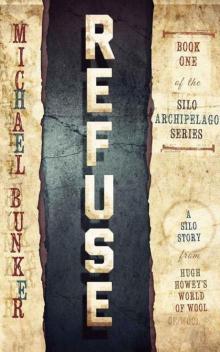 Refuse (The Silo Archipelago Series Book 1)
Refuse (The Silo Archipelago Series Book 1)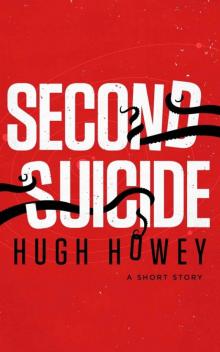 Second Suicide: A Short Story
Second Suicide: A Short Story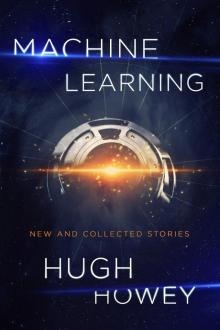 Machine Learning: New and Collected Stories
Machine Learning: New and Collected Stories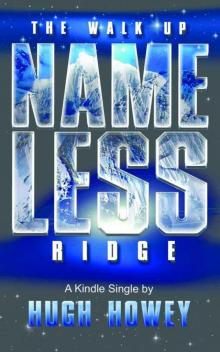 The Walk Up Nameless Ridge
The Walk Up Nameless Ridge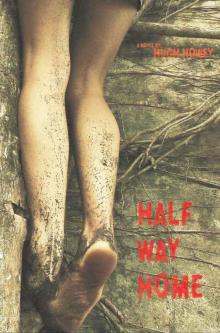 Half Way Home
Half Way Home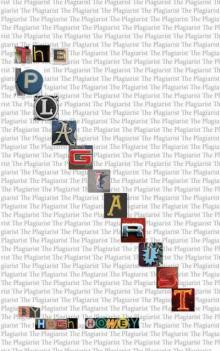 The Plagiarist
The Plagiarist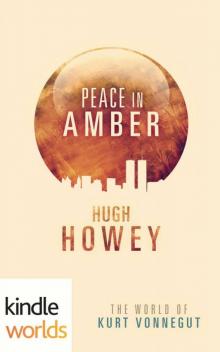 Peace in Amber
Peace in Amber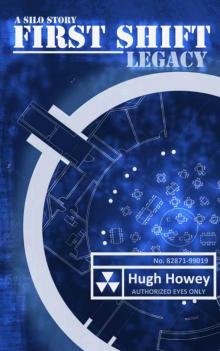 First Shift: Legacy
First Shift: Legacy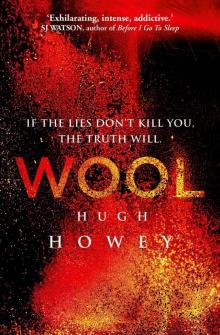 Wool
Wool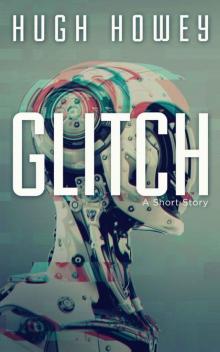 Glitch
Glitch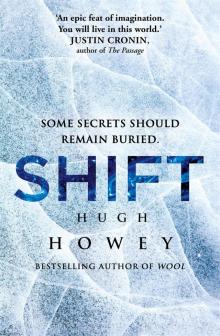 Shift
Shift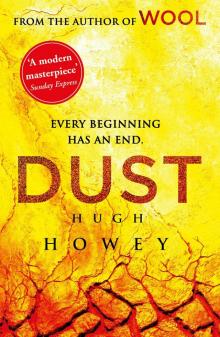 Dust
Dust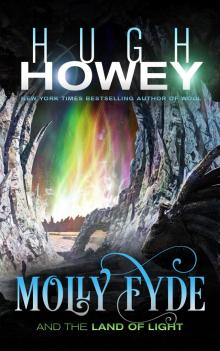 Molly Fyde and the Land of Light
Molly Fyde and the Land of Light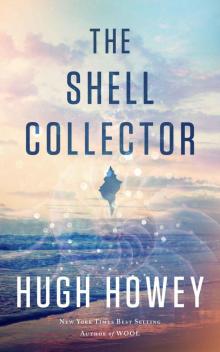 The Shell Collector
The Shell Collector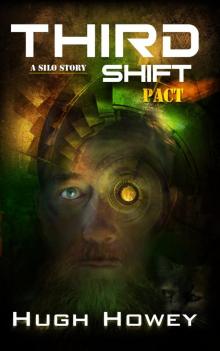 Third Shift: Pact
Third Shift: Pact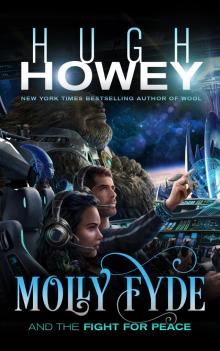 Molly Fyde and the Fight for Peace
Molly Fyde and the Fight for Peace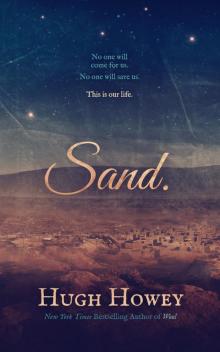 Sand Omnibus
Sand Omnibus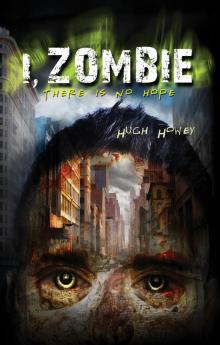 I, Zombie
I, Zombie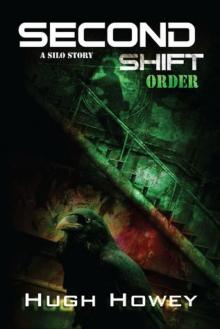 Second Shift: Order
Second Shift: Order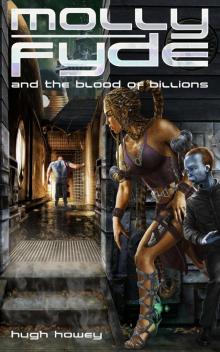 Molly Fyde and the Blood of Billions
Molly Fyde and the Blood of Billions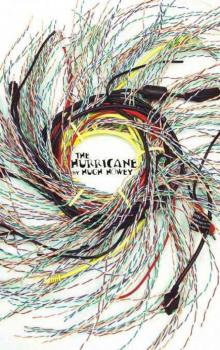 The Hurricane
The Hurricane The Box
The Box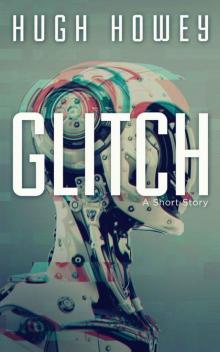 Glitch_A Short Story
Glitch_A Short Story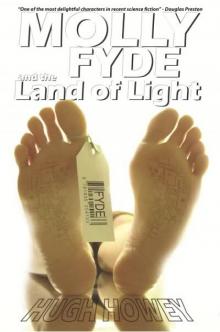 Molly Fyde and the Land of Light tbs-2
Molly Fyde and the Land of Light tbs-2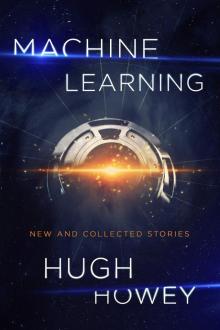 Machine Learning
Machine Learning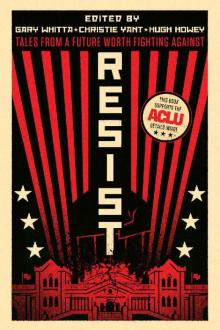 Resist
Resist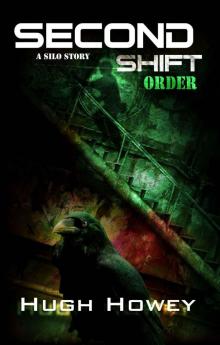 Second Shift - Order (Part 7 of the Silo Series) (Wool)
Second Shift - Order (Part 7 of the Silo Series) (Wool)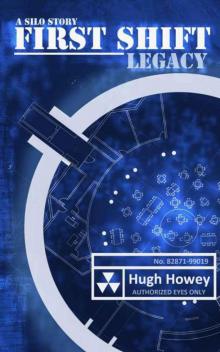 First Shift - Legacy s-1
First Shift - Legacy s-1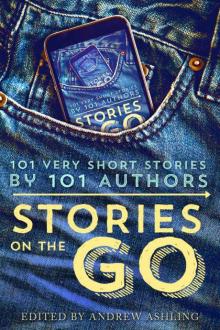 Stories on the Go: 101 Very Short Stories by 101 Authors
Stories on the Go: 101 Very Short Stories by 101 Authors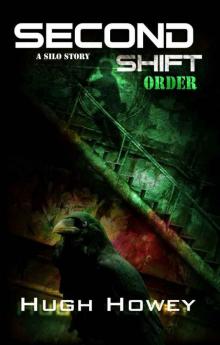 Second Shift - Order s-2
Second Shift - Order s-2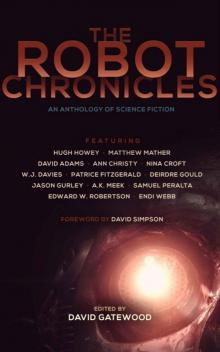 The Robot Chronicles
The Robot Chronicles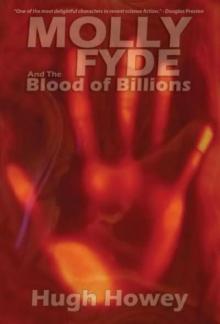 Molly Fyde and the Blood of Billions tbs-3
Molly Fyde and the Blood of Billions tbs-3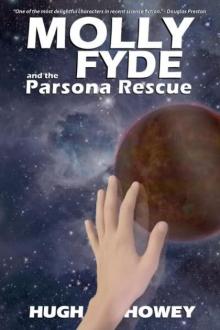 Molly Fyde and the Parsona Rescue tbs-1
Molly Fyde and the Parsona Rescue tbs-1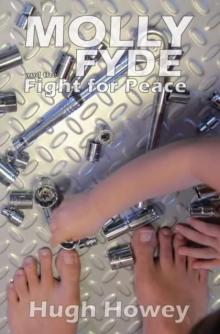 Molly Fyde and the Fight for Peace tbs-4
Molly Fyde and the Fight for Peace tbs-4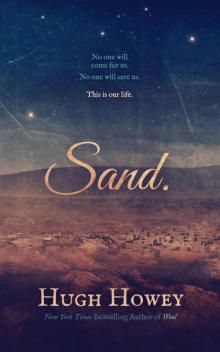 Sand
Sand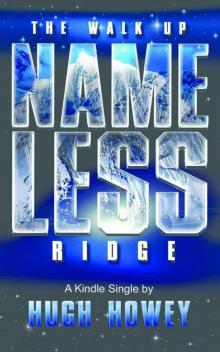 The Walk Up Nameless Ridge (Kindle Single)
The Walk Up Nameless Ridge (Kindle Single) Wool Omnibus Edition (Wool 1 - 5)
Wool Omnibus Edition (Wool 1 - 5)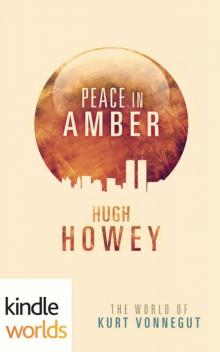 The World of Kurt Vonnegut: Peace in Amber
The World of Kurt Vonnegut: Peace in Amber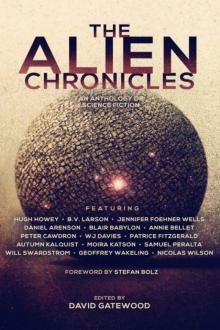 The Alien Chronicles
The Alien Chronicles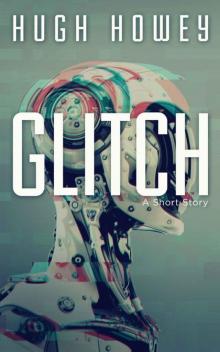 Glitch: A Short Story (Kindle Single)
Glitch: A Short Story (Kindle Single)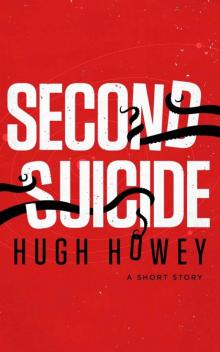 Second Suicide: A Short Story (Kindle Single)
Second Suicide: A Short Story (Kindle Single)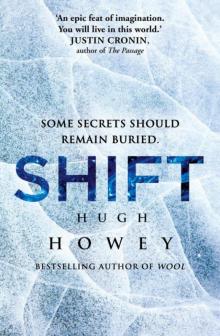 Shift (silo)
Shift (silo)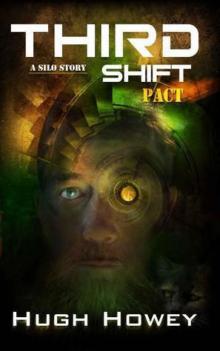 Third Shift - Pact
Third Shift - Pact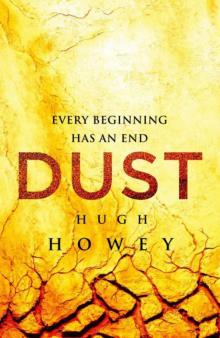 Dust s-9
Dust s-9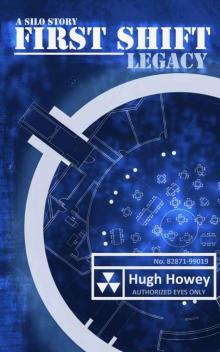 First Shift - Legacy (Part 6 of the Silo Series) (Wool)
First Shift - Legacy (Part 6 of the Silo Series) (Wool)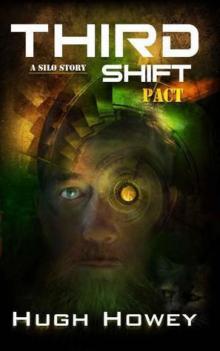 Third Shift - Pact s-3
Third Shift - Pact s-3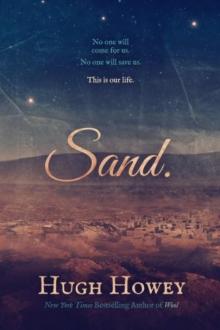 Sand: Omnibus Edition
Sand: Omnibus Edition The Box: A Short Story
The Box: A Short Story